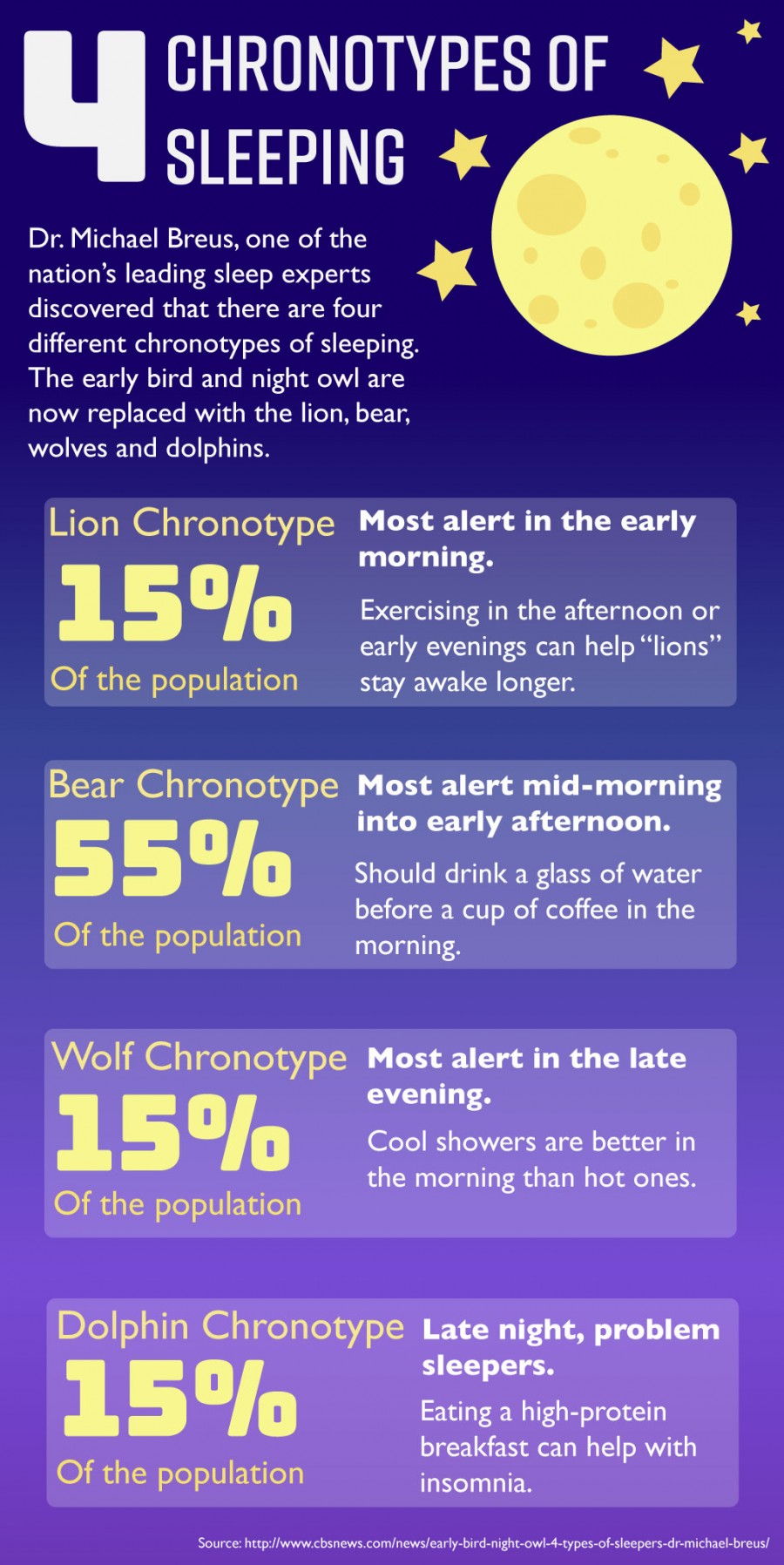Research has recently been completed using data from 23andMe
along with volunteer participants for the UK Biobank to determine the genetic
influence that might play a role in whether someone tends to go to sleep early
or later. The benefit of this test is that the participants from England
actually wear activity monitors daily in order to track their movement,
allowing the research to be derived from a person’s actual movement rather than
whether they say they are a morning/night person. The participants’ genomes
were looked at closely in an attempt to see what gene variants play a role in a
person’s sleep pattern and their chronotype; it was found that those who have the largest number of
morning-linked variants did actually fall asleep an average of 25 minutes
earlier than the person who had the least amount. Overall, they looked at 351
possible genes variants that could affect a person’s tendency to fall asleep
early or late, with most playing roles on brain tissue or in the retina, where
we take in light. The researchers are also looking into how this sleep can
affect mental health, mainly of those who are night owls.
As a self-proclaimed night owl, this article caught my eye, as I always assumed that my sleep pattern was a result of my relatively poor upkeep of it (which I'm sure still plays a role in it). I am particularly interested in how this can affect mental health, and I wonder whether those who are genetically inclined to go to sleep later are therefore more likely to develop a mental illness just due to the gene variant they possess. This was also my first time hearing about the UK Biobank, and I think this is a great resource for ethical research and data analysis on humans. 
I have heard of the effects of blue light on your brain and how it effects your sleep schedule. Research describes it is due to the depletion of Dha when the retina is exposed to blue light after the sun goes down. I am curious to see if there is any connection between those studies and the research of genetics determining sleep schedule. I would be interested in learning more about potential supplements or ways to prevent someone from experiencing the effect of their respective gene.
ReplyDeleteI found this article to be very interesting as well! As we are all starting to learn, it seems there may be a genetic predisposition for everything these days. And as someone who has redefined my sleep patterns into more of a morning person during my late twenties its pretty interesting to think i could be re framing my genes in a sense since i've always been a "night ow" until recently. I'm interested to see further research and if maybe genetic sequencing or alterations could potentially help people that suffer insomnia or other sleep related diseases.
ReplyDelete